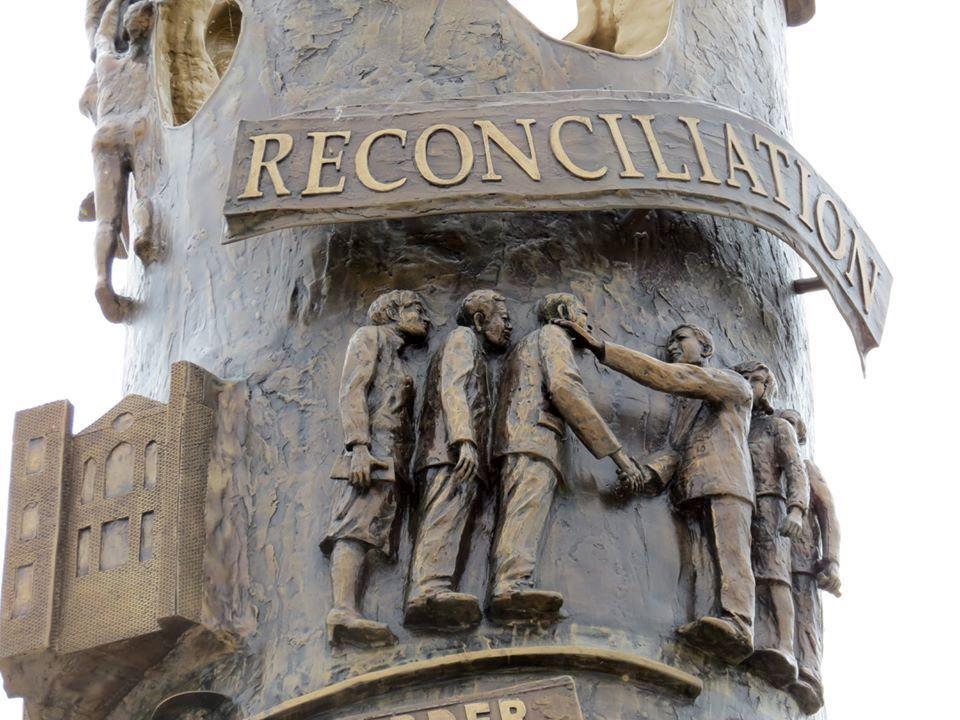
John Hope Franklin Reconciliation Park.
U.S. Interior Secretary David L. Bernhardt has designated the John Hope Franklin Reconciliation Park as part of the African American Civil Rights Network, formally recognizing the historical and national significance of the tragic Tulsa Race Massacre of 1921 and Dr. John Hope Franklin’s work to advance the African American civil rights movement.
The African American Civil Rights Network Act, signed into law by President Trump in January 2018, authorizes the National Park Service to coordinate and facilitate federal and non-federal activities to commemorate, honor, and interpret the history of the African American Civil Rights movement; the significance of the Civil Rights movement as a crucial element in the evolution of the Civil Rights Act of 1964; and the relevance of the African American Civil Rights movement in fostering the spirit of social justice and national reconciliation.
The John Hope Reconciliation Park is located in the Greenwood neighborhood of Tulsa.
“My father, historian John Hope Franklin, chairman of the National Park Service Advisory Board from 1999-2001, would be pleased that the National Park Service is adding Greenwood's story to the African American Civil Rights Network,” said Dr. John Hope Franklin’s son, Dr. John W. Franklin. “His father, my grandfather, attorney Buck Coilbert Franklin, survived the 1921 Tulsa Race Massacre and assisted his neighbors in rebuilding their devastated community.”
The Tulsa Massacre began May 31, 1921, and culminated in two consecutive days of widespread violence and devastation against the Black community in Tulsa’s Greenwood neighborhood, one of the wealthiest Black communities in the nation at the time, leaving many residents dead or imprisoned, and homes, churches, and businesses destroyed.
Distinguished historian, educator, and civil rights advocate Dr. John Hope Franklin, the son of a Tulsa Massacre survivor, irrevocably transformed the understanding of American history through his scholarship and activism, while advancing the cause of the African American civil rights movement during the twentieth century. Dr. Franklin served as the Chairman of the National Park Service Advisory Board from 1999-2001.
The John Hope Franklin Reconciliation Park features Hope Plaza and the Tower of Reconciliation, memorializing the history of African Americans in Oklahoma, including the lives lost at the 1921 Tulsa Race Massacre, with the goal of transforming years of racial division into a hopeful future of reconciliation and cooperation for Tulsa and the Nation. John Hope Franklin Reconciliation Park is a public-private partnership, owned by The City of Tulsa and managed by the John Hope Franklin Center for Reconciliation, Inc.
The African American Civil Rights Network includes sites, facilities, and programs that commemorate, honor, and interpret the significant struggle for civil rights in the United States. There are currently 29 resources in the AACRN, 18 of which are administered by the National Park Service, including Martin Luther King Jr. National Historical Park, Mary McLeod Bethune Council House National Historic Site, Port Chicago Naval Magazine National Memorial, Pullman National Monument, and Selma to Montgomery National Historic Trail.

 Support Essential Coverage of Essential Places
Support Essential Coverage of Essential Places






